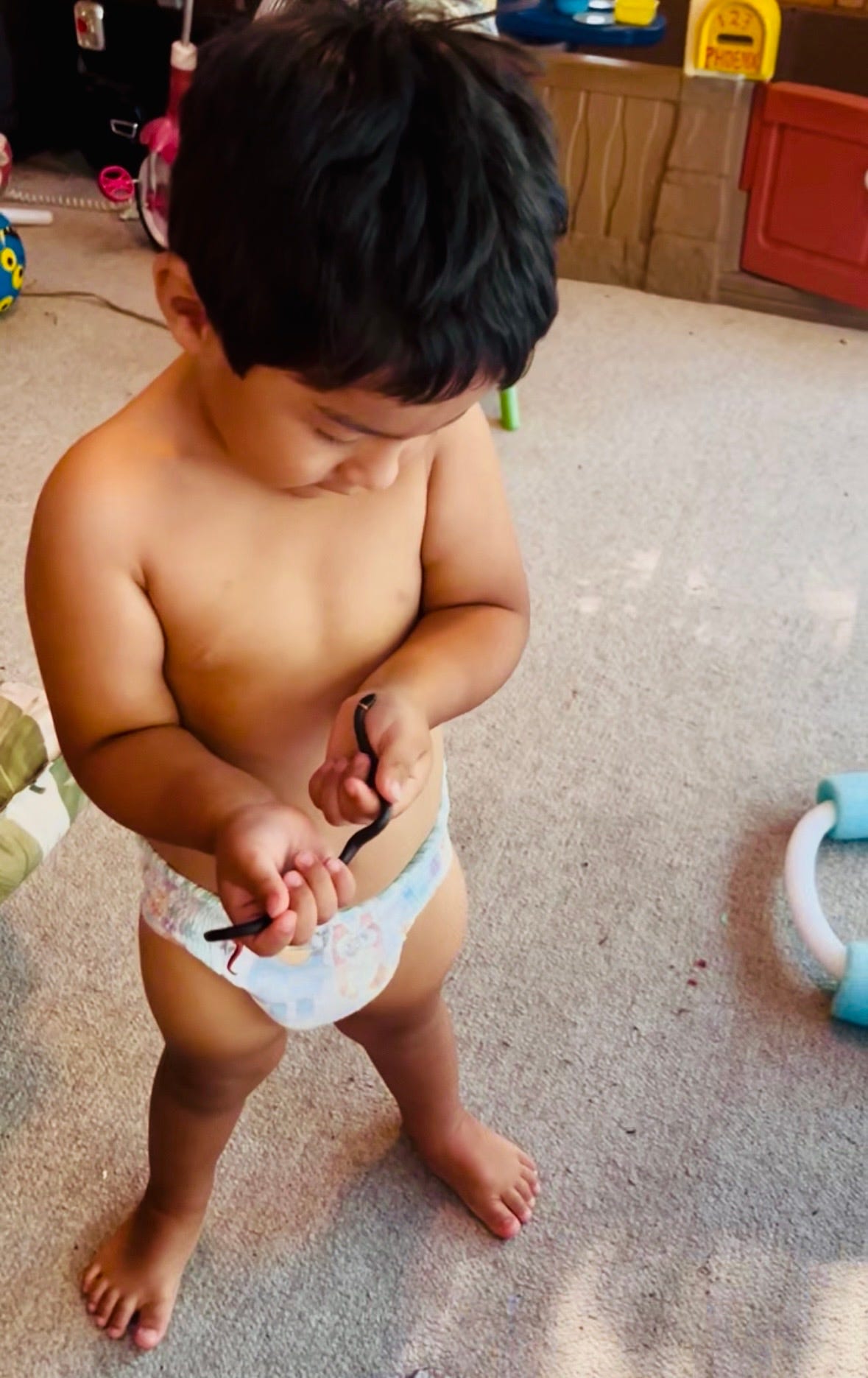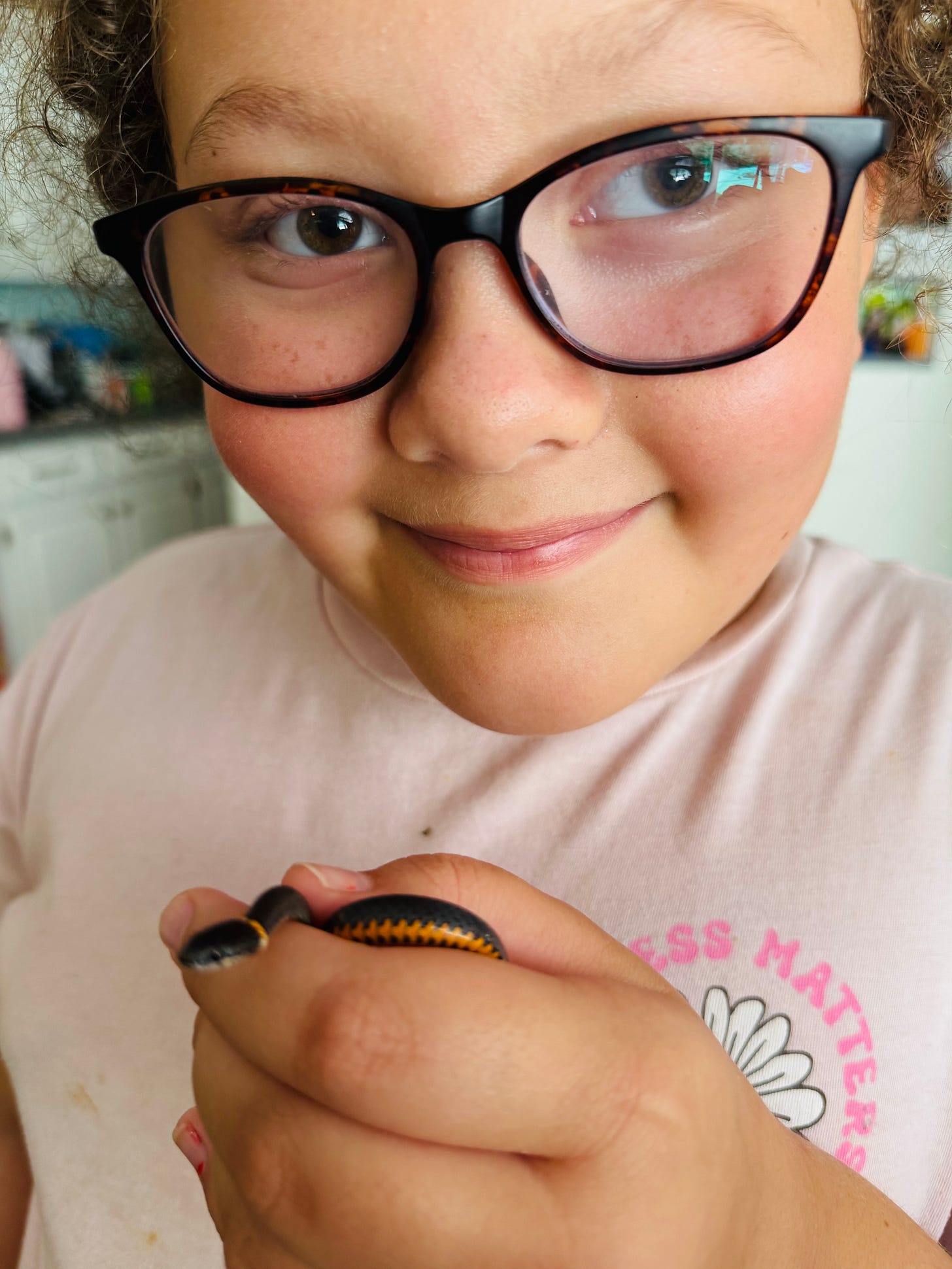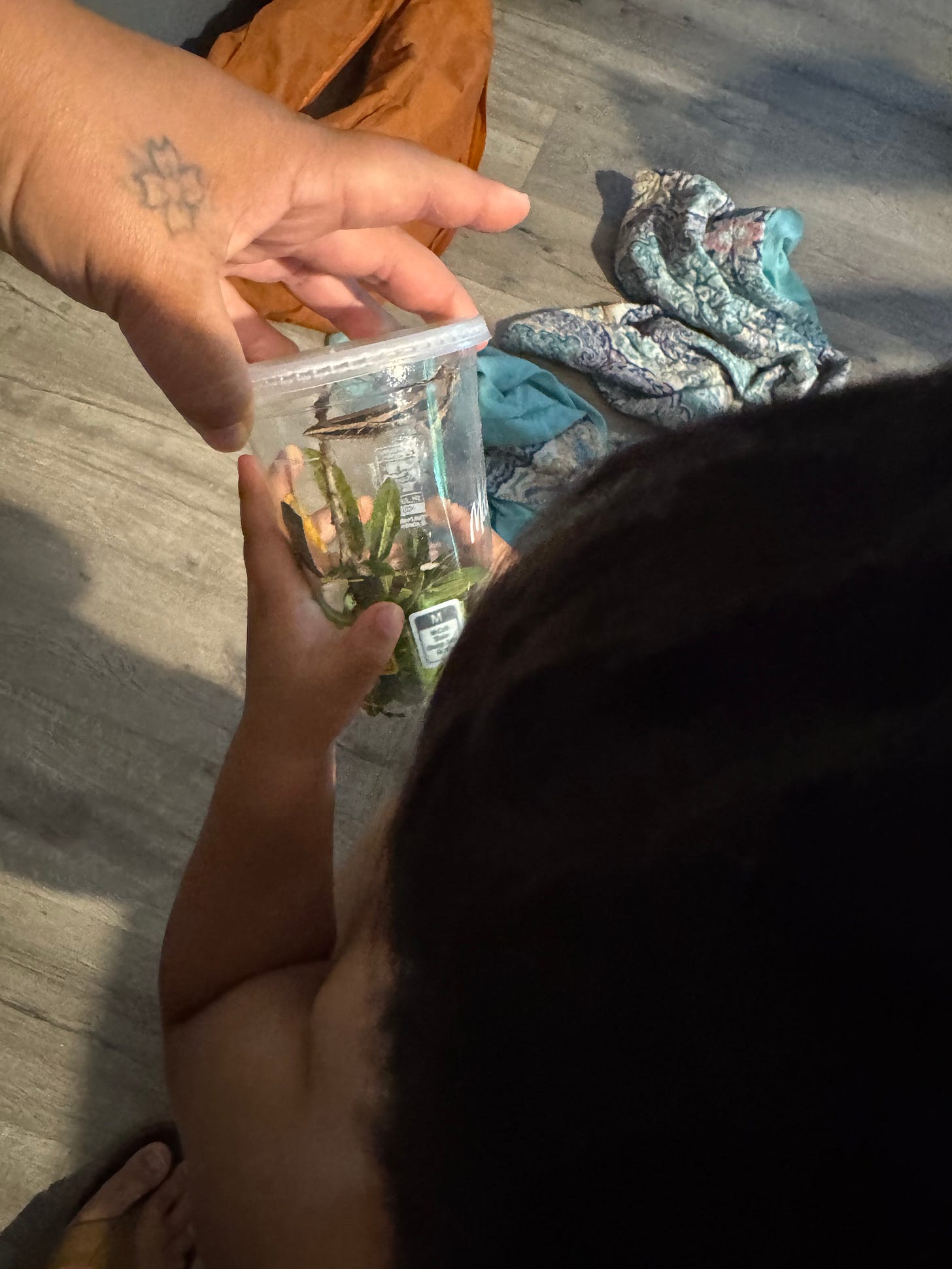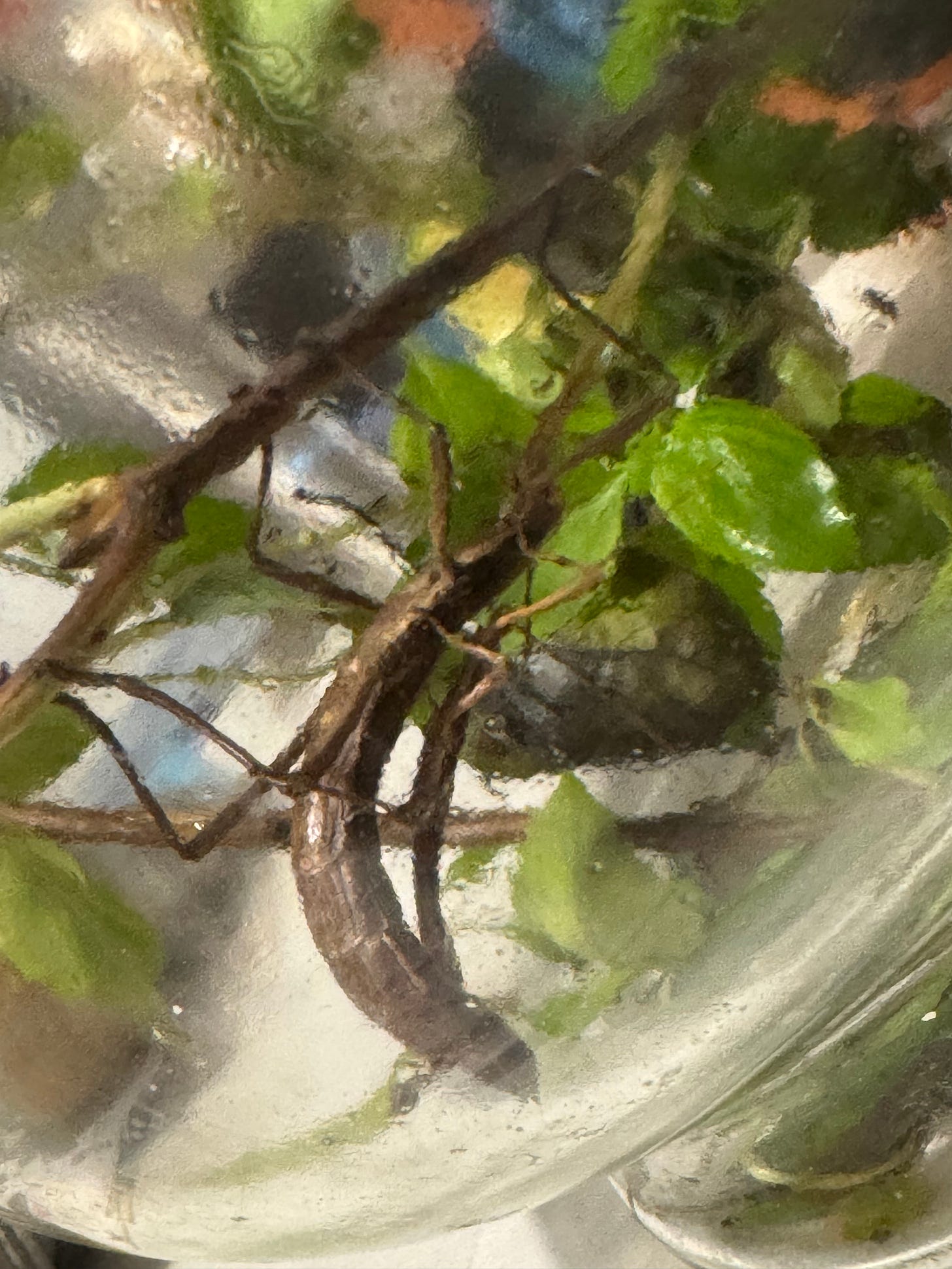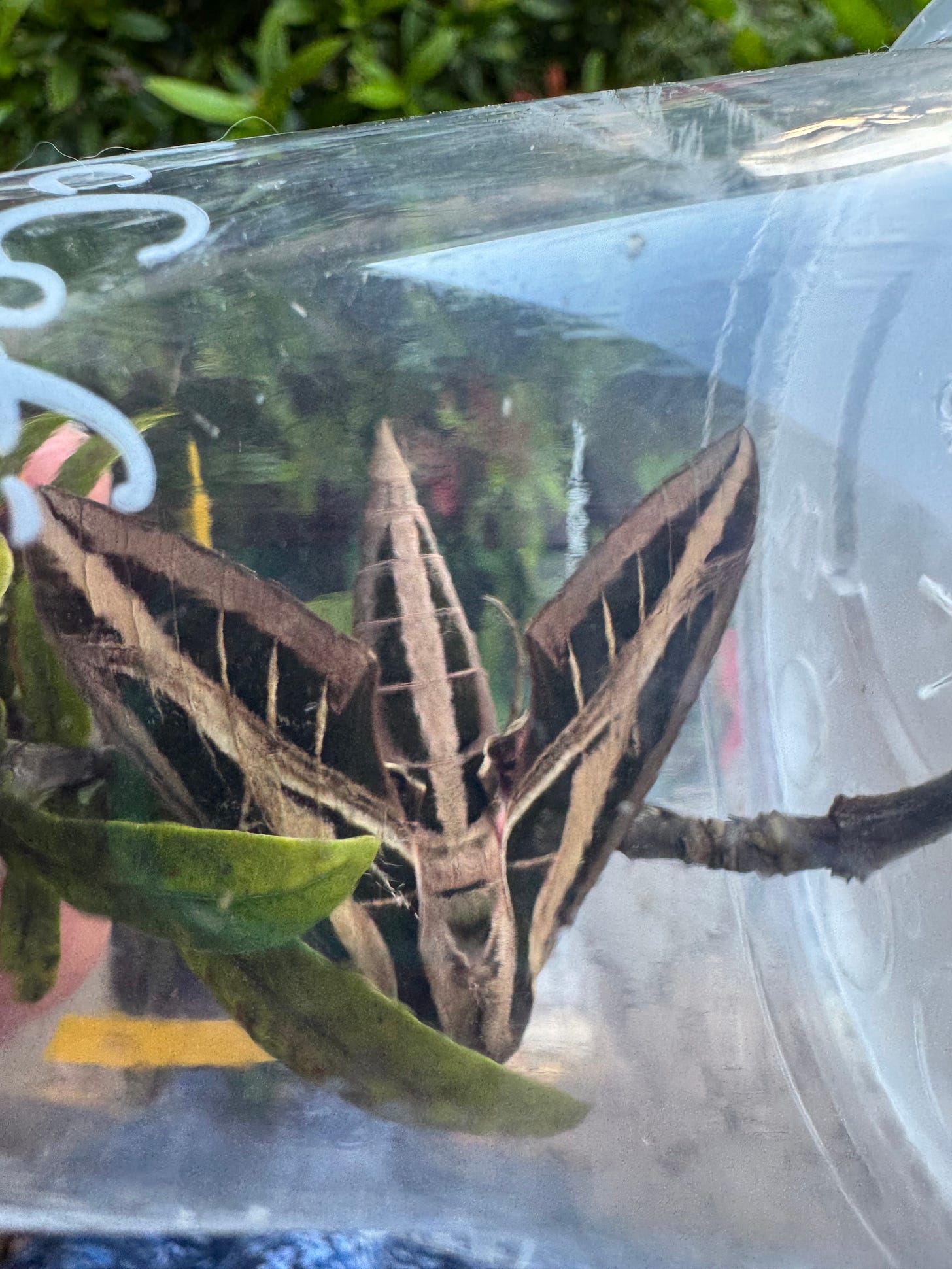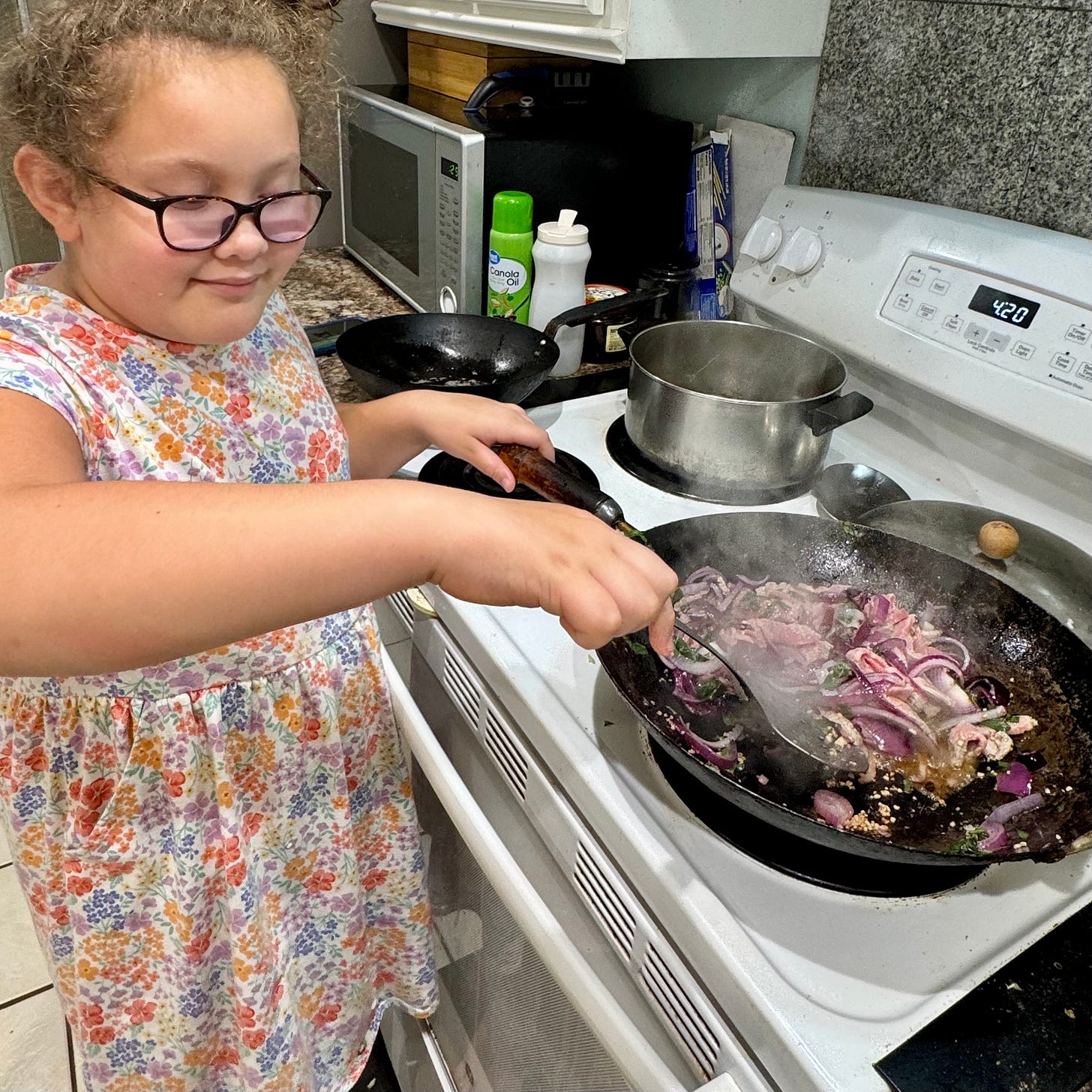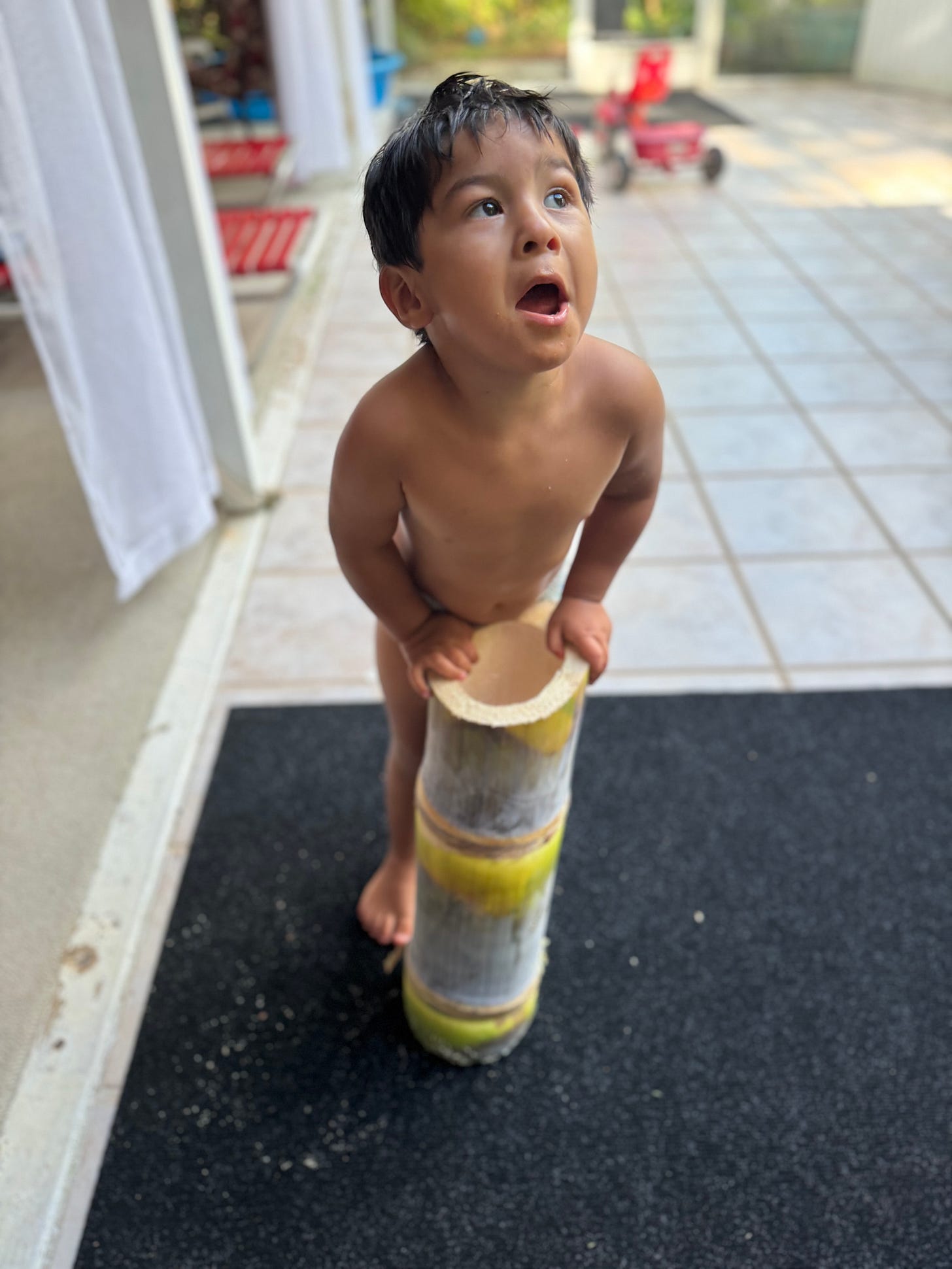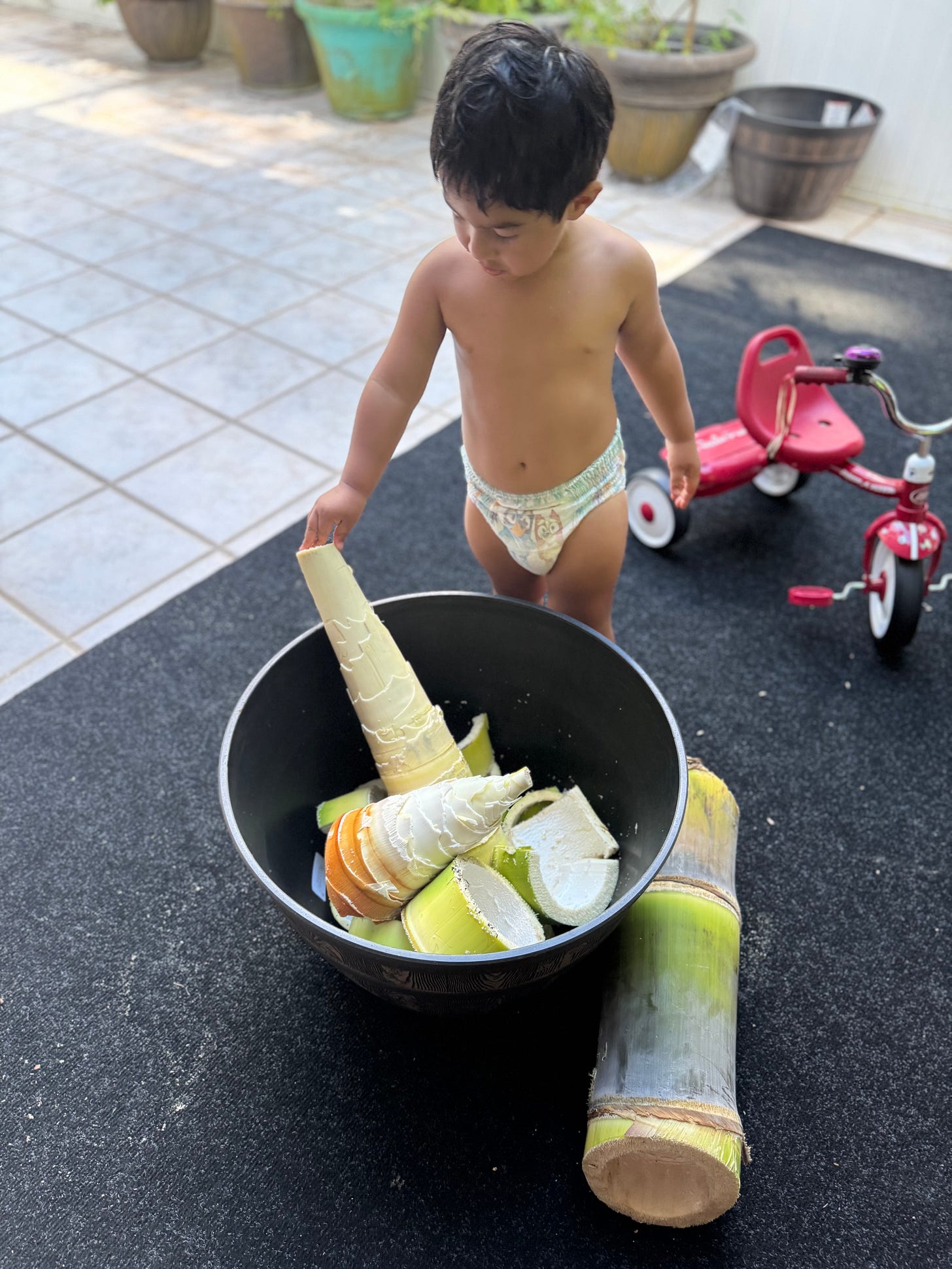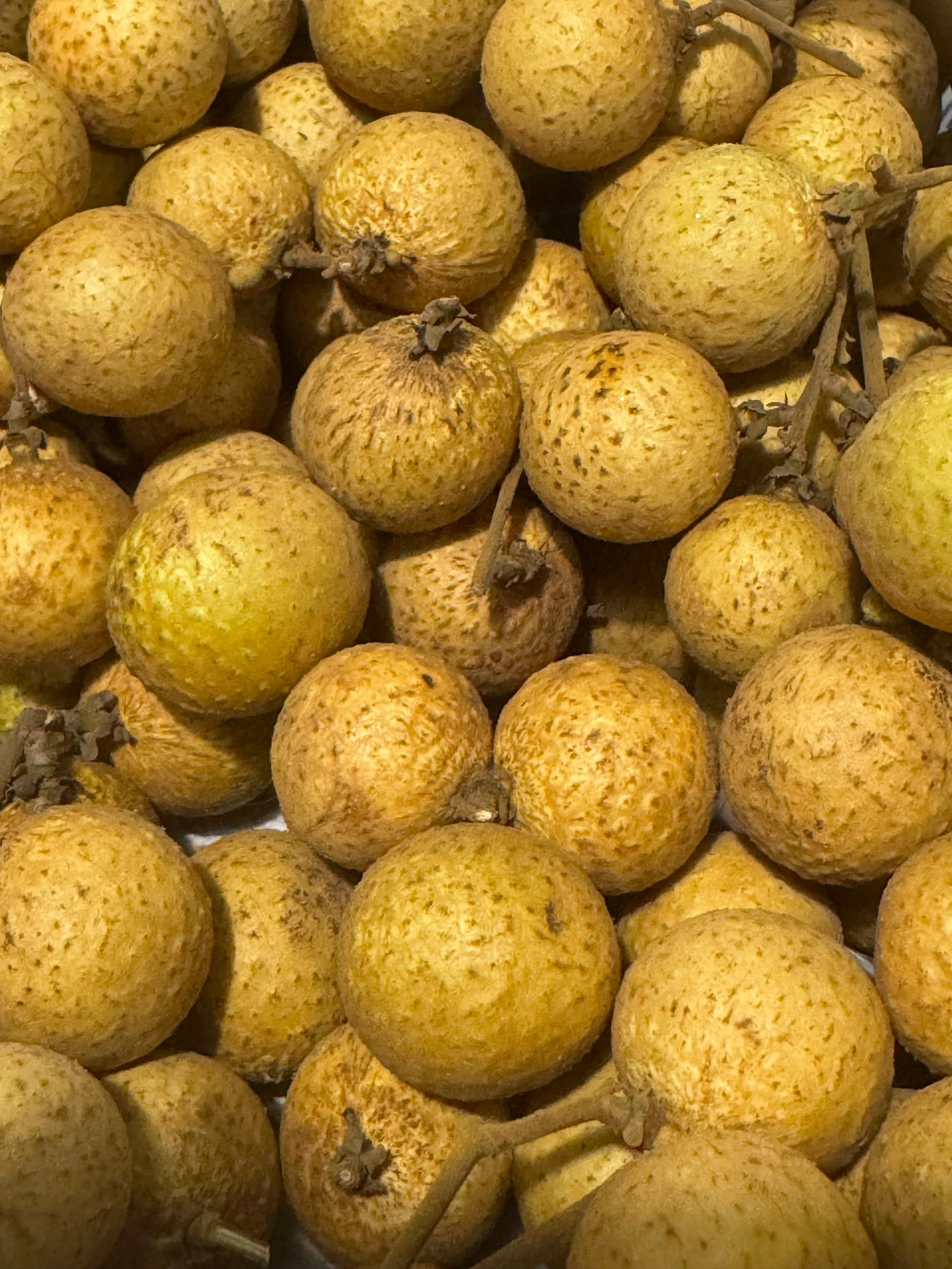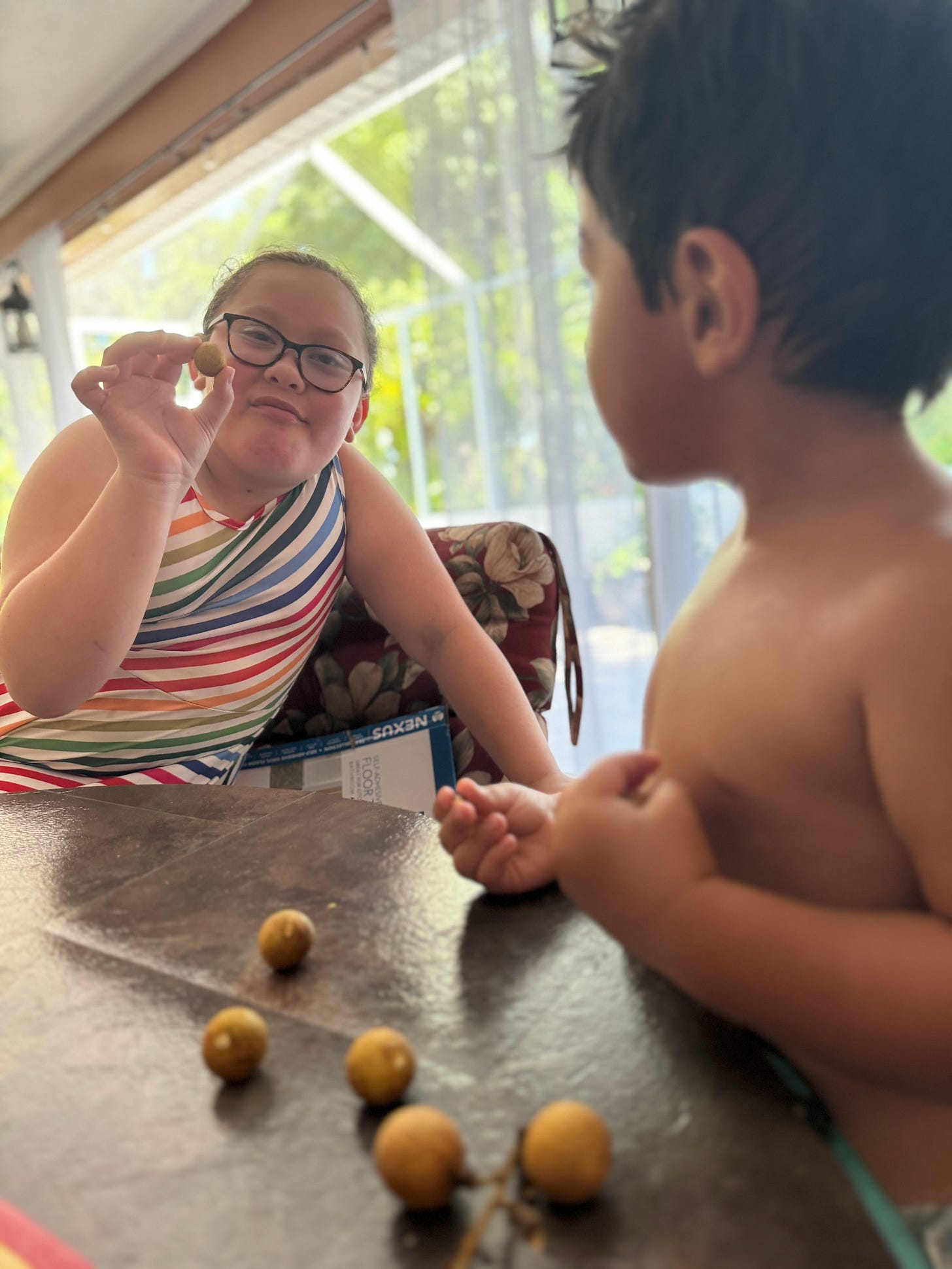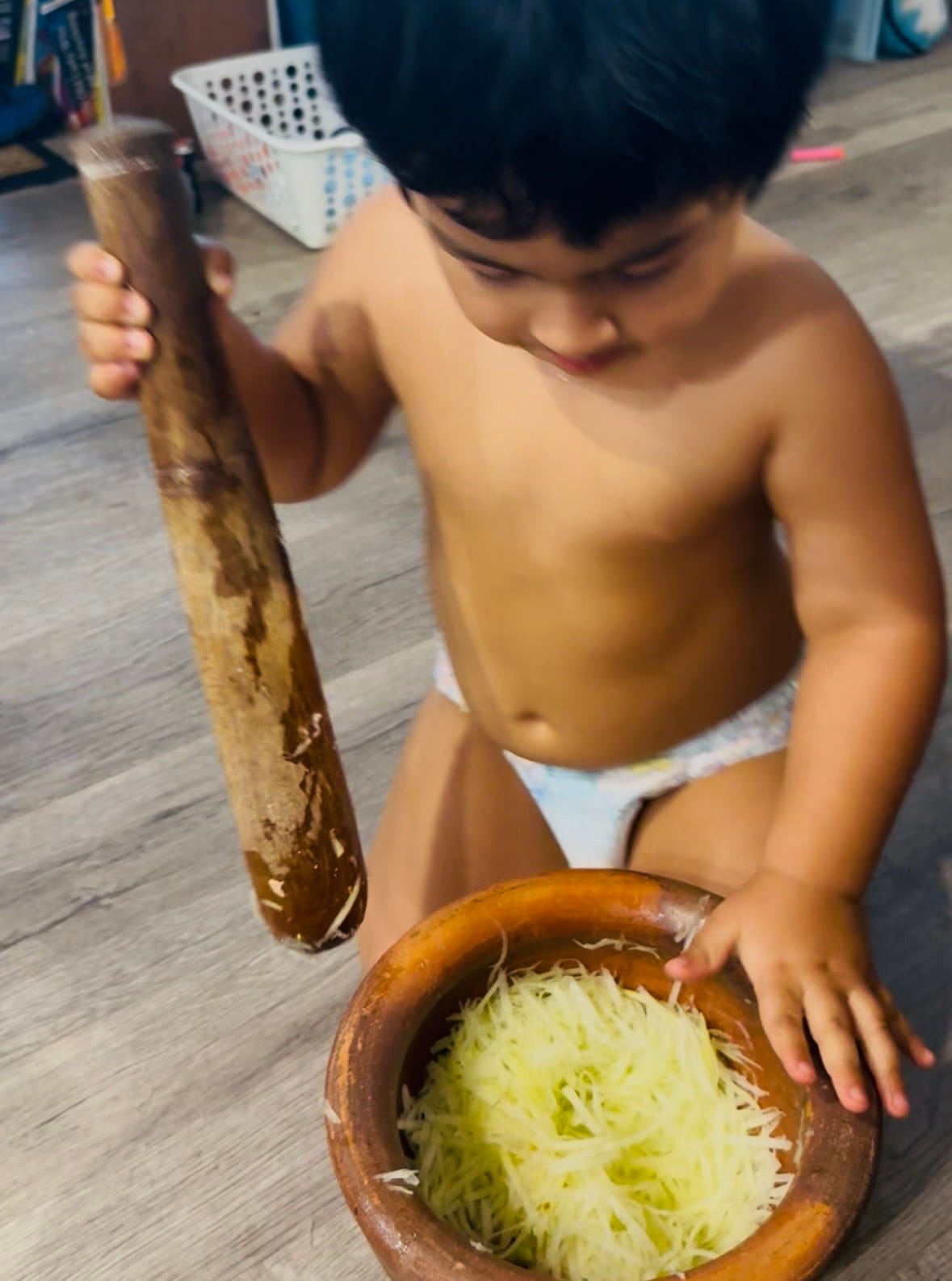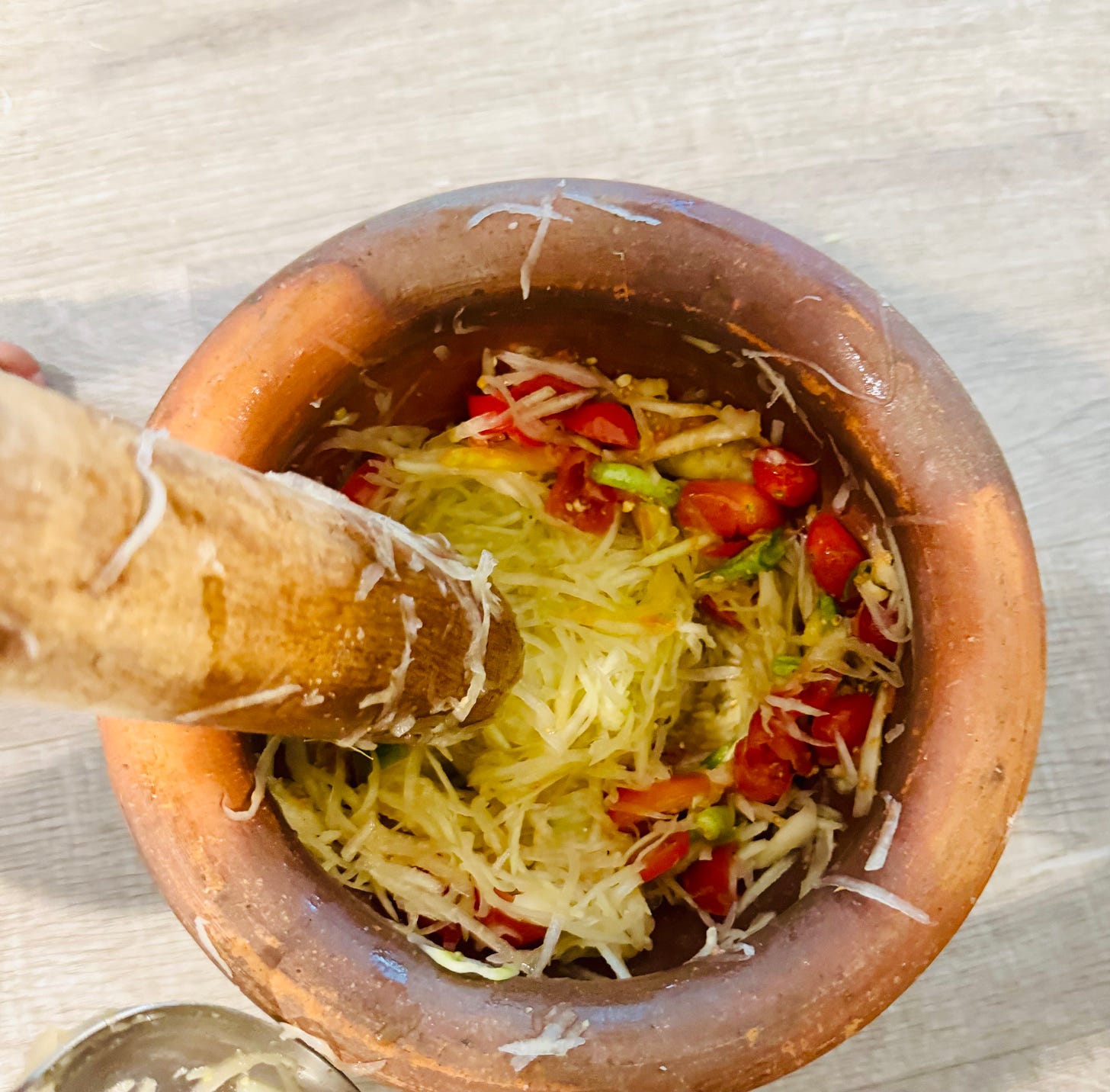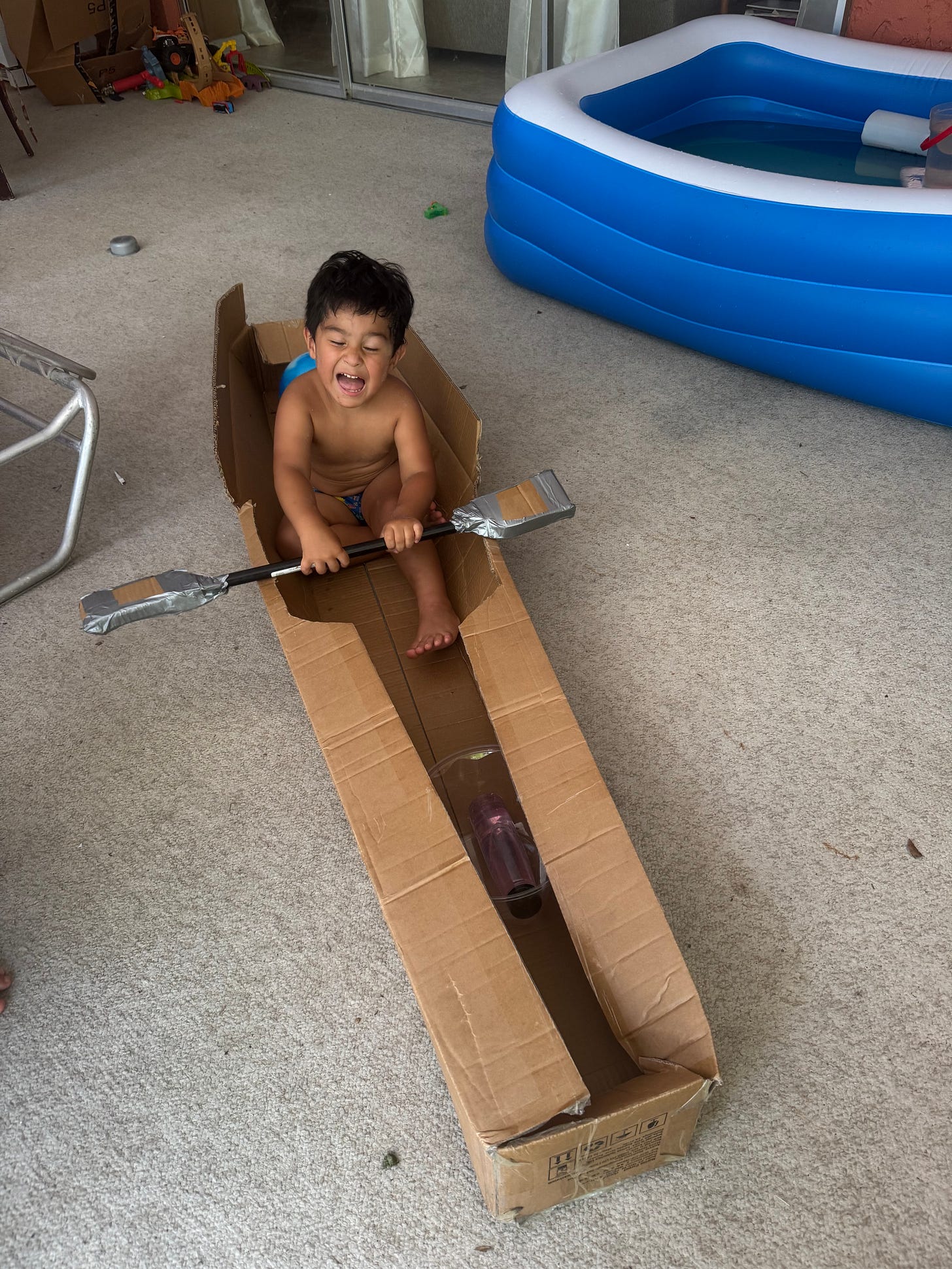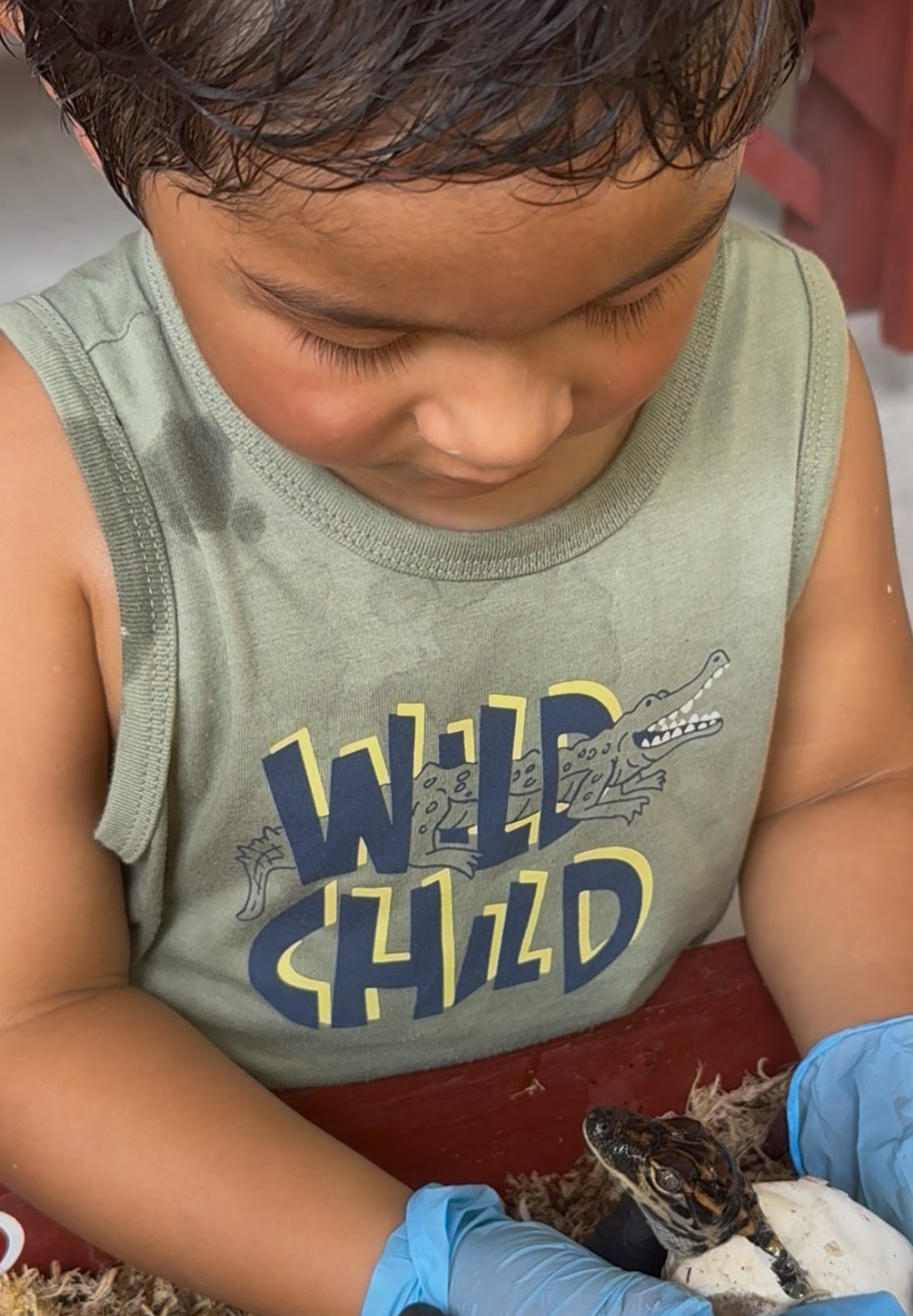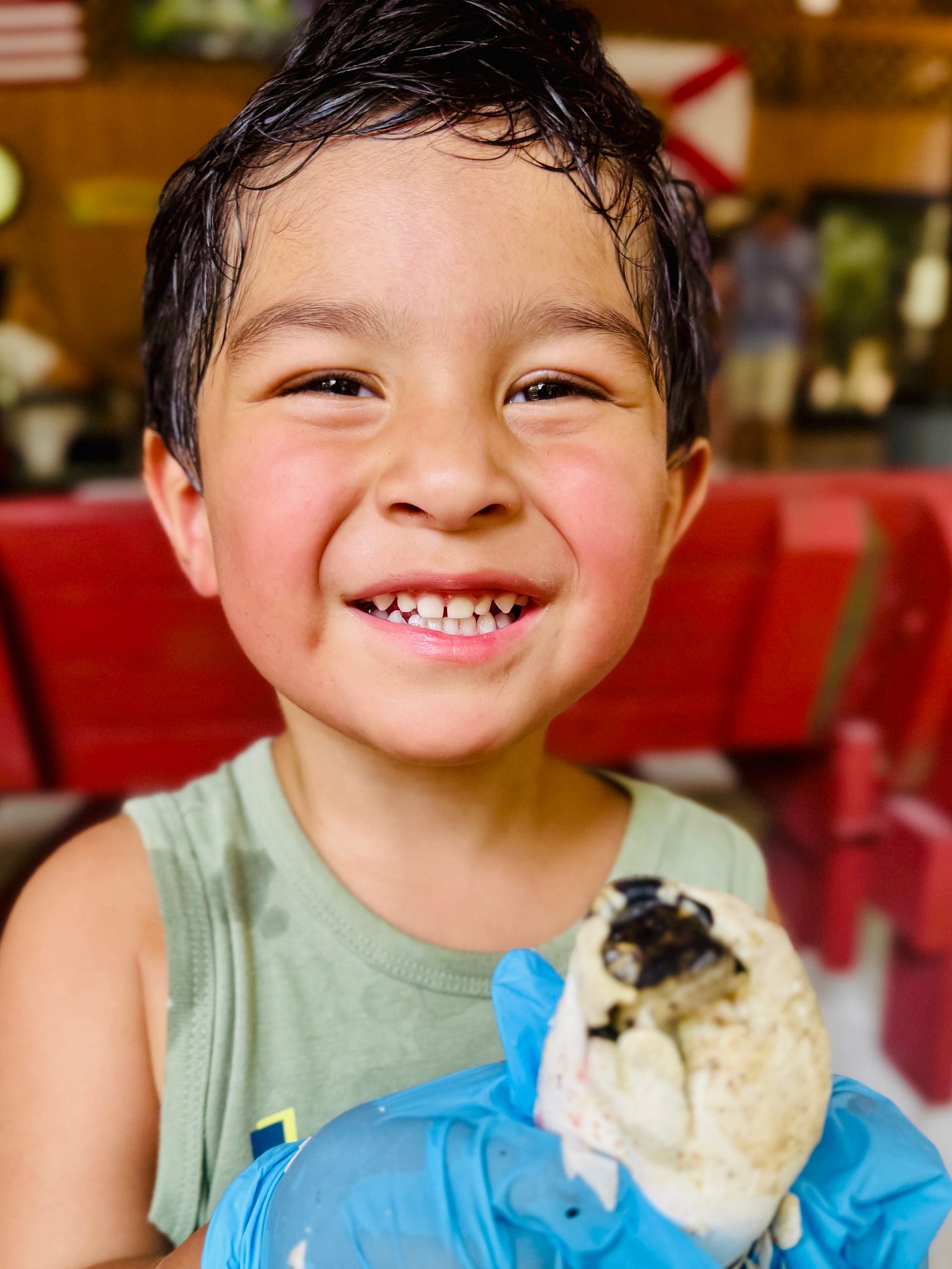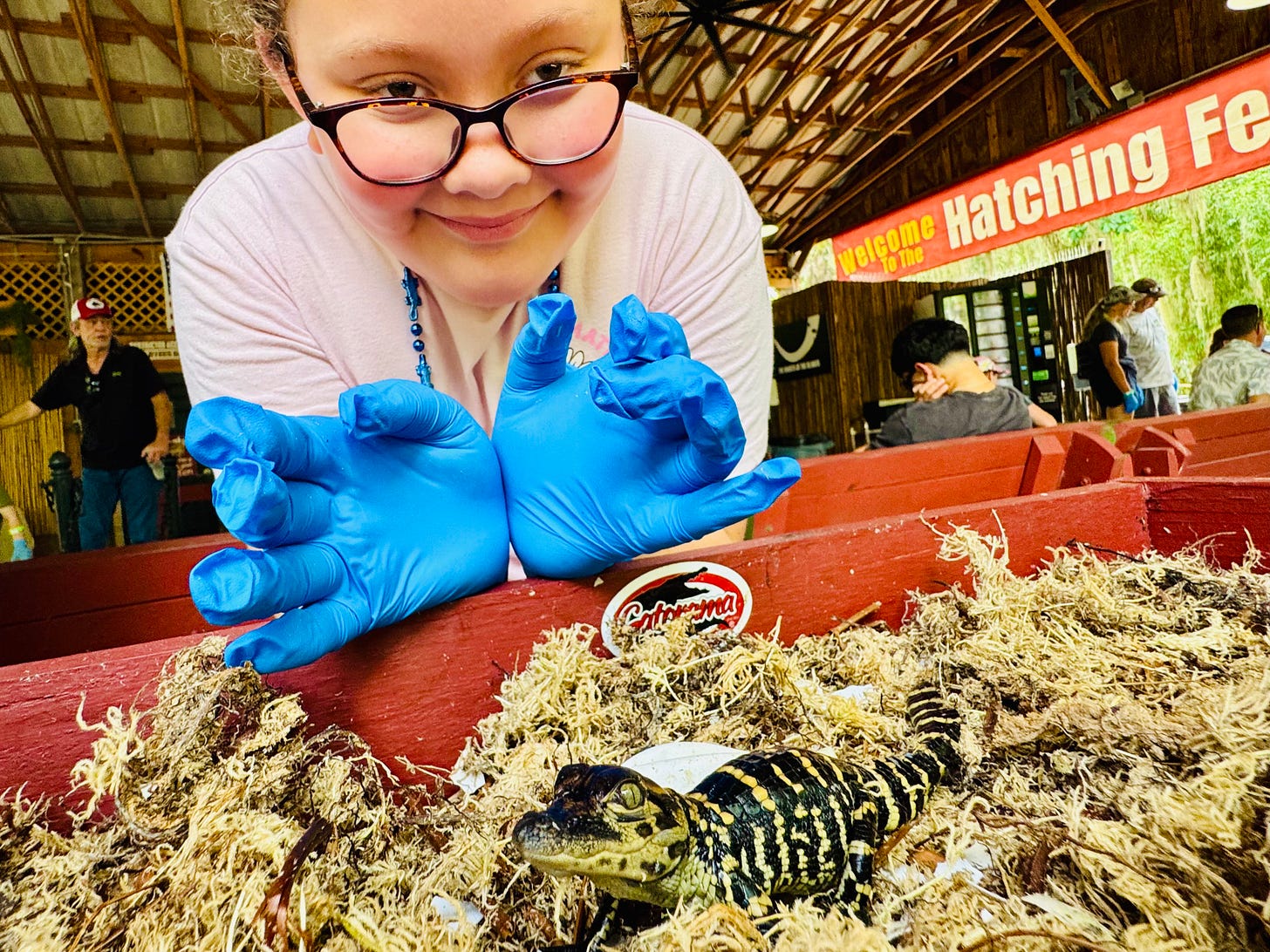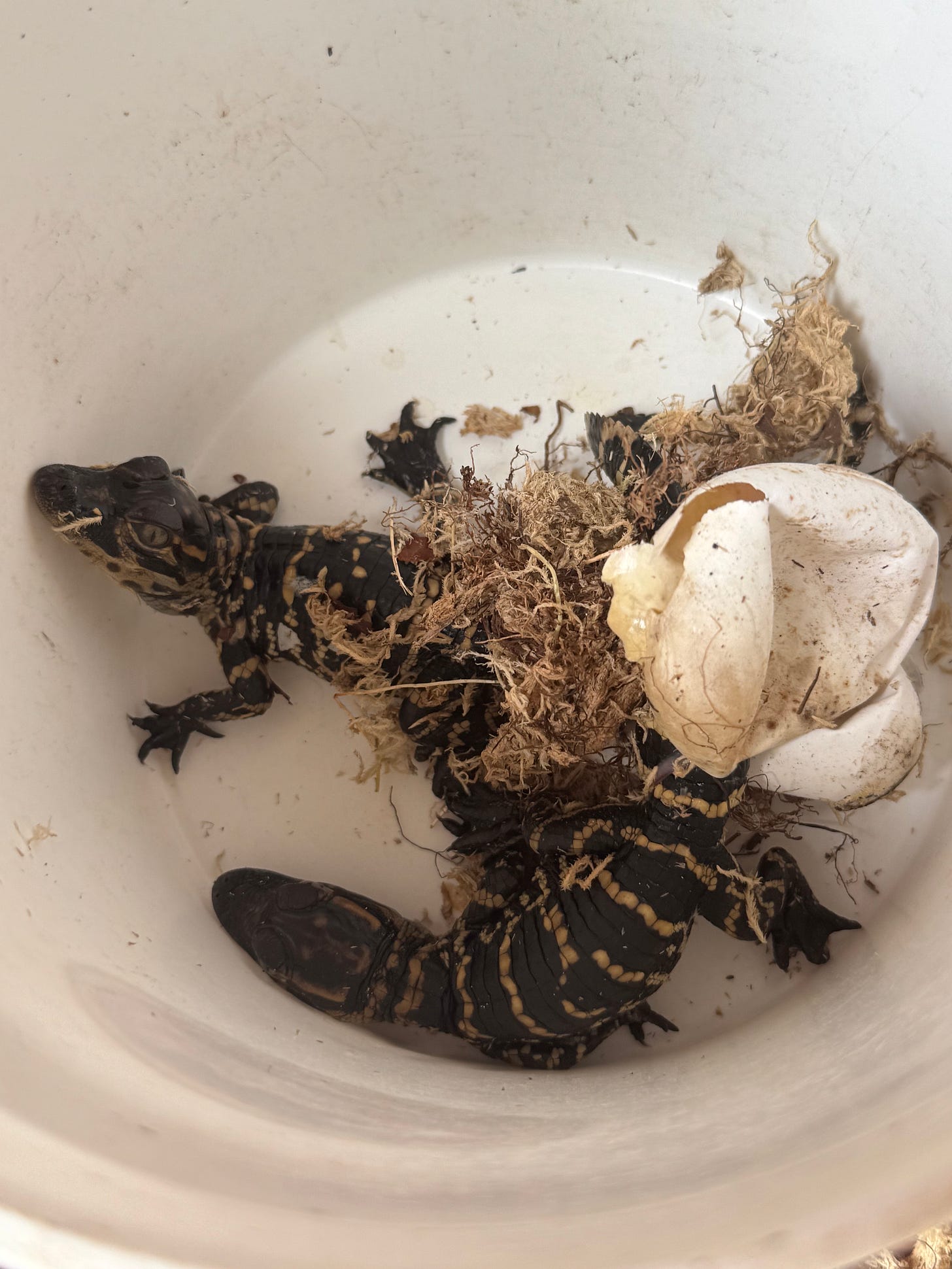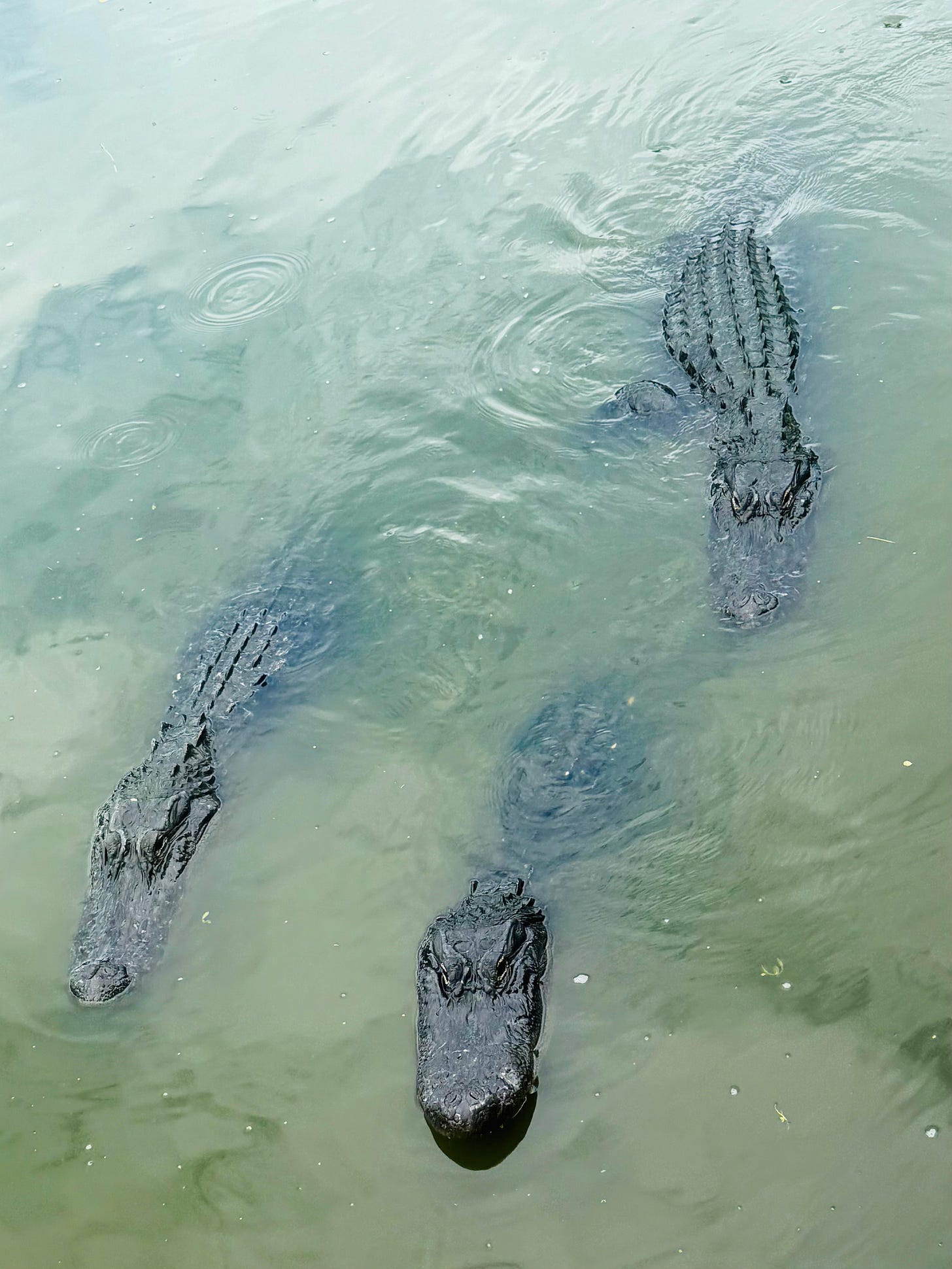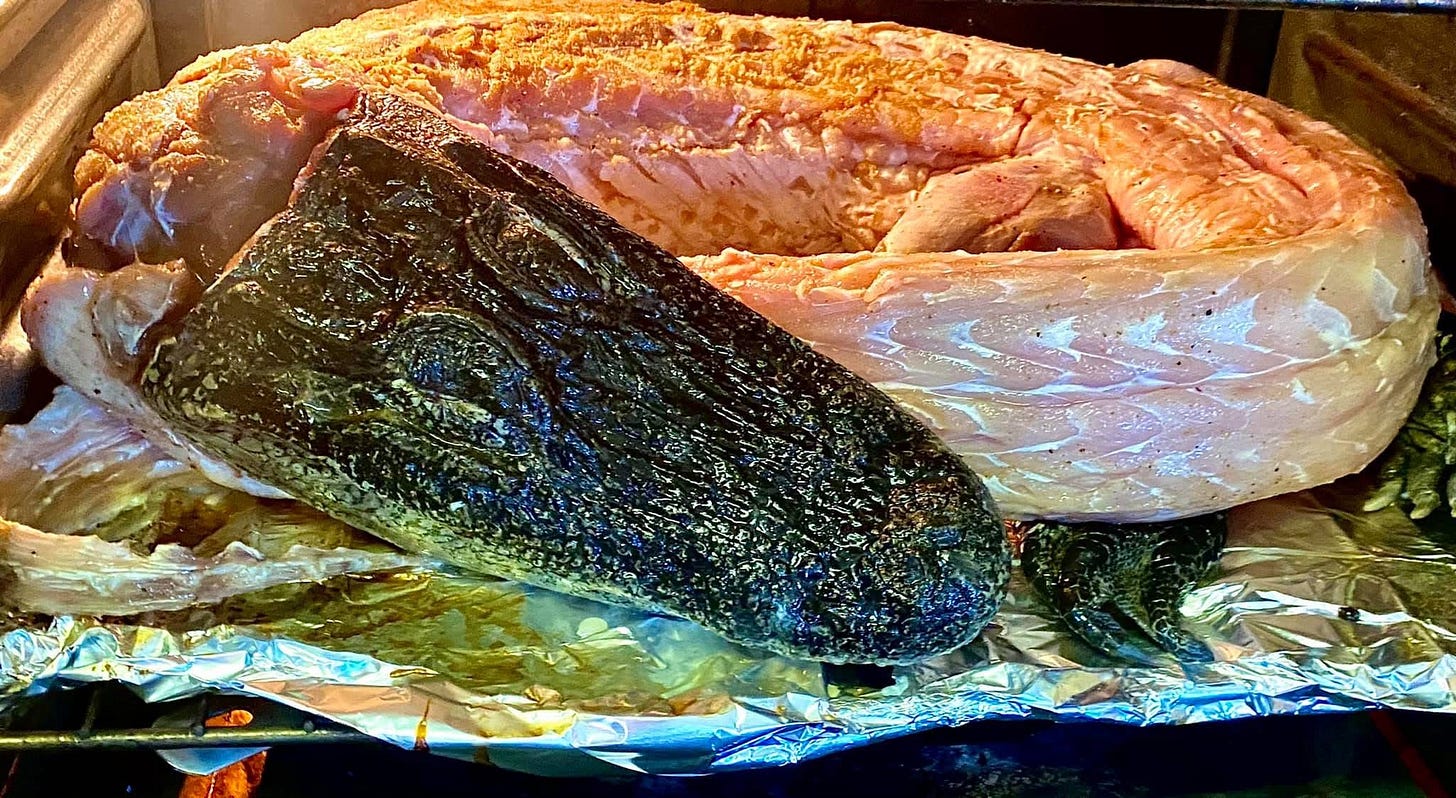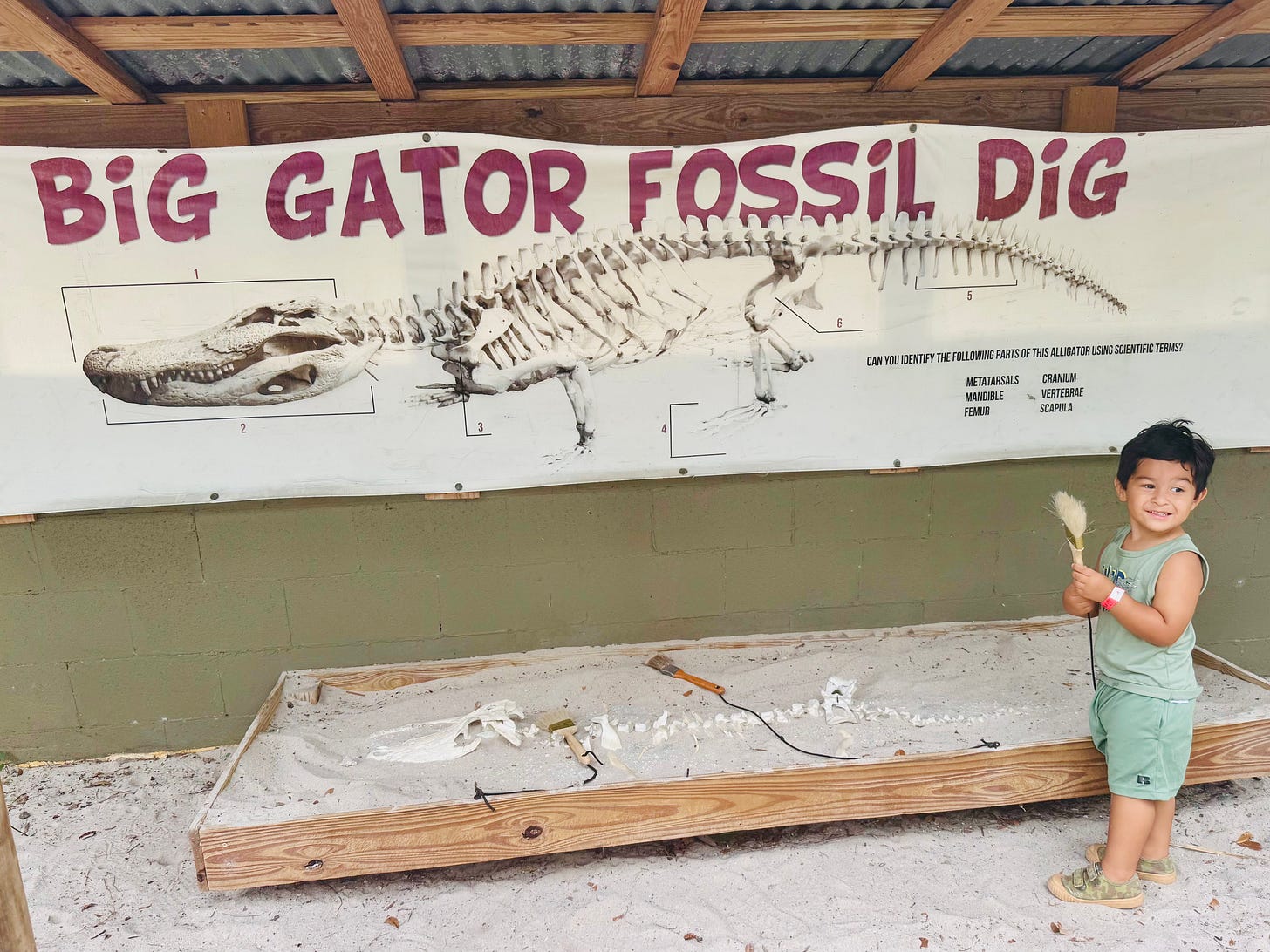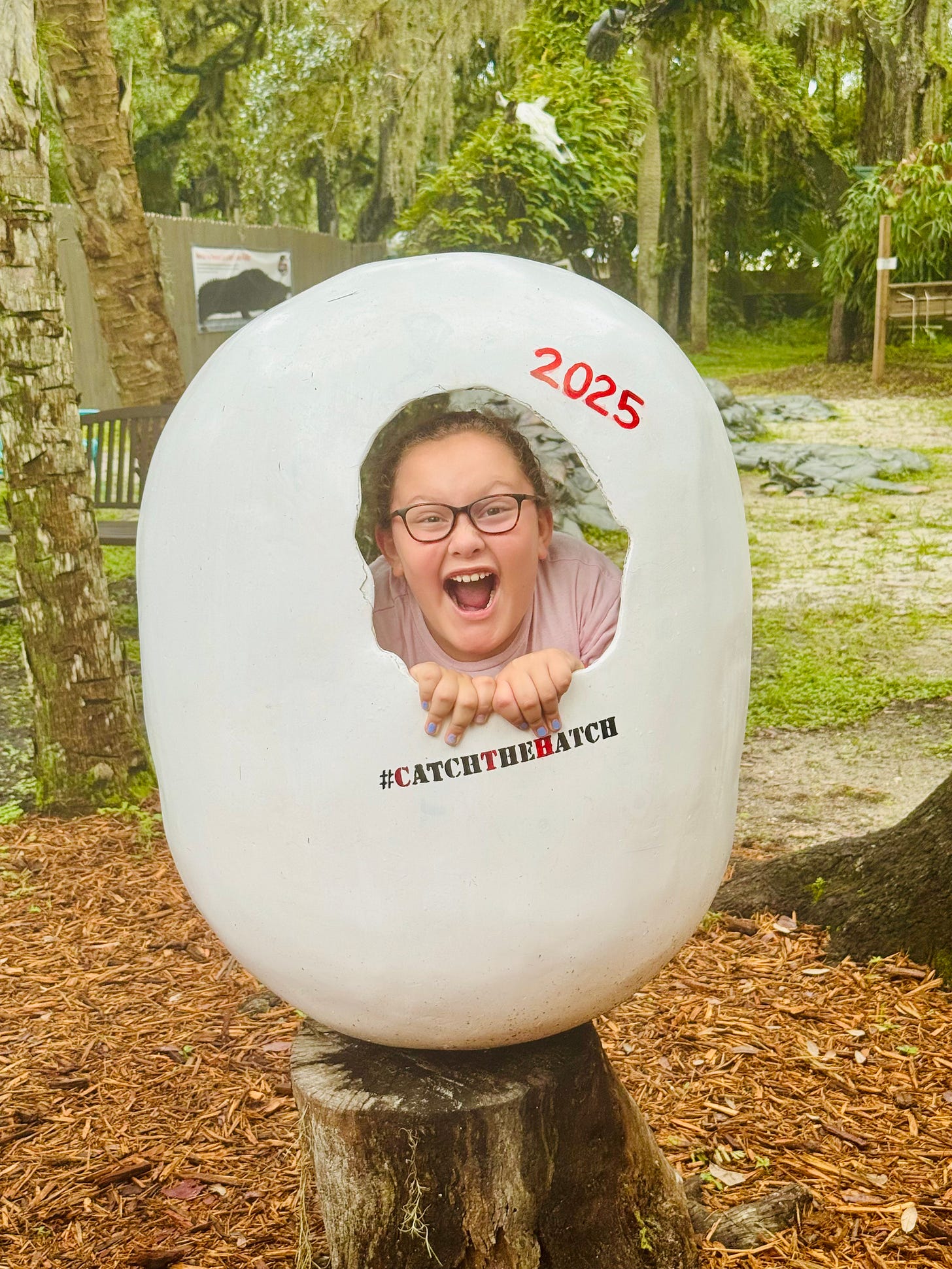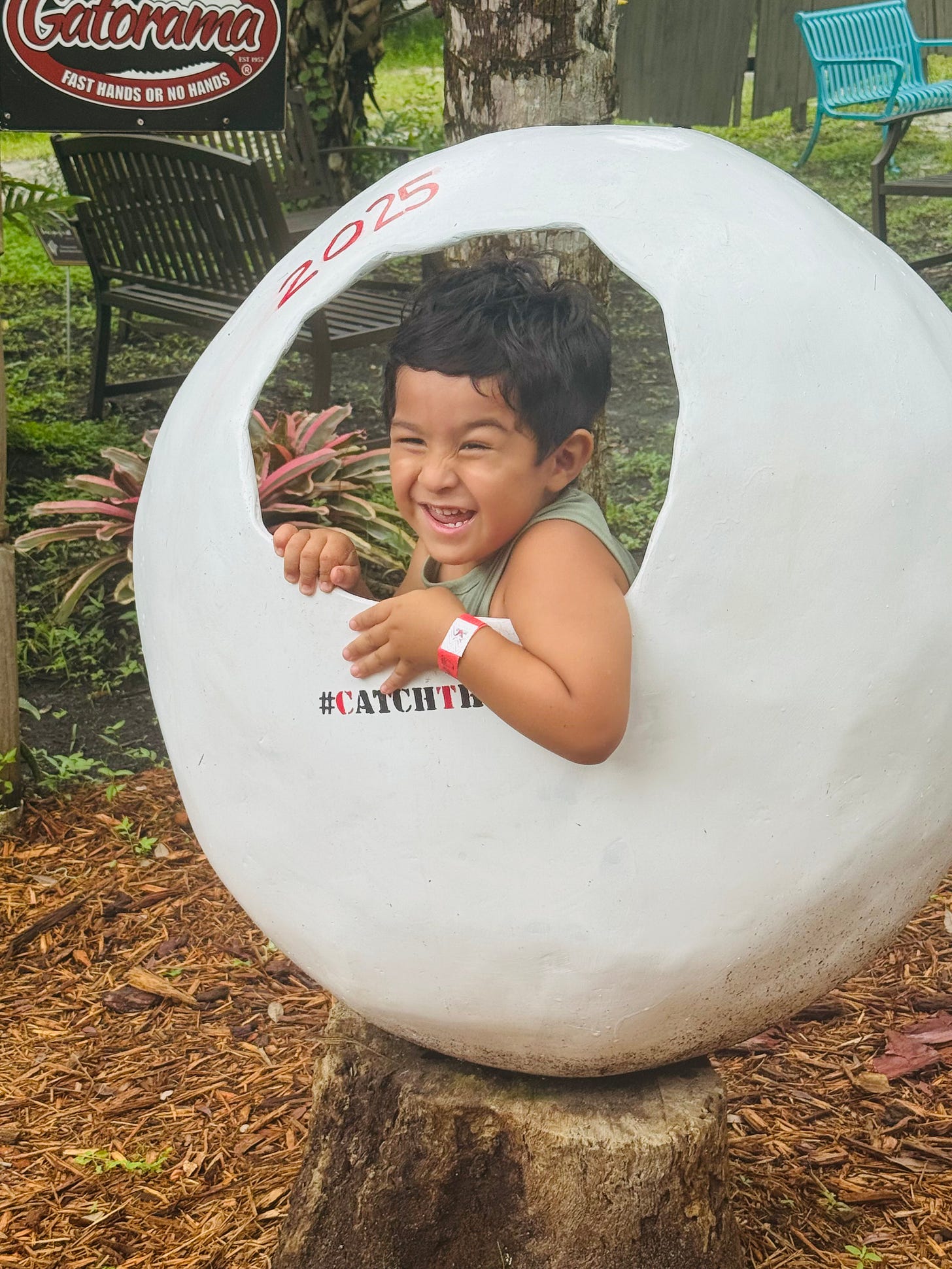Learning Without Walls: Unschooling in our Wild Florida “Classroom”
The school year didn’t start in a classroom for Phoenix and Mako. It started in our backyard, on our porch, and out in the swamps. Week by week, lesson by lesson, Florida herself has been our textbook.
Snakes, Moths, and Walkingsticks
On a warm evening in LaBelle, we discovered a delicate ring-necked snake (Diadophis punctatus) tucked away in the grass. What might have looked like a “scary snake” to some became a science lesson about ecosystems, predator-prey relationships, and how even the smallest creatures keep balance.
From the back yard to the front porch, Phoenix studied a banded sphinx moth (Eumorpha fasciatus). Its intricate wing patterns became an art exercise, its life cycle a biology lesson, and its migratory path a geography detour. A friend later shared a pair of Southern Two-Striped Walkingsticks (Anisomorpha buprestoides). Watching their unusual mating dance gave us an opening into discussions about insect defense mechanisms, evolution, and even a little poetry inspired by their strange, synchronized sway.
Cooking, Counting, and Culture
Learning doesn’t end outdoors. In the kitchen, we’ve cooked traditional Isaan dishes—like Yum Tang Goong Haeng with dried shrimp—and Mexican recipes honoring Phoenix and Mako’s other ancestral roots. Every step was a lesson: measuring ingredients (math), reading recipes and family stories (language arts), exploring spice trade routes and cultural history (social studies), and experimenting with flavor and presentation (science and art combined).
Cooking teaches patience, chemistry, ratios, and respect. But it also grounds us in where we come from, reminding Phoenix and Mako that their education is as much about identity as it is about skills.
Bamboo Shoots and Longan: Tasting Our Traditions
This week’s lessons took us into the kitchen and the orchard. We processed fresh bamboo shoots—an Isaan tradition that connects us to our Thai roots. The kids peeled, sliced, and boiled the shoots, learning not only the careful steps needed to make them edible, but also the stories of their grandmother’s cooking and the flavors of the land she came from.
Later, we picked longan straight from the tree, cracking open the smooth shells to reveal the translucent fruit inside. Sweet, juicy, and fragrant, the kids devoured them with sticky fingers and big smiles. What began as a snack turned into a lesson about botany, geography, family history, and joy—because food is never just food; it’s memory, science, and culture all at once.
Cooking and foraging together bridges generations: from Isaan bamboo shoots to Mexican salsas, Phoenix and Mako are learning that what we eat is a living link to who we are, where we come from, and the ancestors who carried these traditions forward.
Cardboard Kayaks: Learning by Building
One afternoon, Phoenix and Mako decided the best classroom wasn’t the porch or the swamp—it was the garage. With nothing more than cardboard, tape, and a few wild ideas, we built our own kayaks.
Measuring lengths turned into math. Folding seams became physics. Testing weight distribution became a lesson in engineering. And, of course, painting and decorating the hulls became pure art.
In the end, our cardboard kayaks weren’t really about whether they could float. They were about imagination, problem-solving, and the reminder that in our homeschool, everything teaches everything—even a pile of cardboard waiting to be transformed.
Hatchlings and Giants
This week, our third, began with tiny heartbeats inside eggs. We held baby alligators as they hatched, learning about Florida’s iconic reptiles—the American alligator and its cousin, the American crocodile. We traced their story: once hunted to near extinction, now thriving under protection.
Not long after, Phoenix and Mako stood eye-to-eye (safely, from behind barriers) with giant 14-foot gators, some nearly a century old. They learned to respect their power, to marvel at their resilience, and to recognize the role of conservation in preserving species.
Our lessons didn’t stop at observation. We also learned what it means to harvest and process an alligator responsibly. An 8-footer is now in the freezer, destined to become alligator coconut curry, fried tail, and barbecue ribs. These meals will carry new layers of meaning—nutrition, tradition, and a reminder that humans and nature are always intertwined.
Fossils, Farms, and Front Yards
Between these highlights were a hundred smaller lessons:
Fossil hunting by the riverbanks, where every shark tooth tells a story older than human memory.
Caring for goats, chickens, and a new lamb for 4H—biology, responsibility, and economics in one daily routine.
Watching caterpillars, spiders, and lizards claim corners of our yard, each a chance to name species, sketch patterns, and practice storytelling.
Gardening in the summer heat, learning what thrives and what struggles in Florida’s soil.
Each day, Phoenix and Mako are reminded that math is in the kitchen, science is in the dirt, art is in every wing and shell, and history lives in our food and fossils.
Homeschooling, or in our case Florida Unschooling, isn’t about sitting at a desk and learning obedience. It’s about realizing that the world is one long, interconnected lesson plan. For Phoenix and Mako, everything teaches everything—and we’re only just getting started…
Learning Beyond Ourselves: Community as Classroom
Our unschooling doesn’t stop with snakes, moths, bamboo shoots, or even baby alligators. Phoenix and Mako also learn from how deeply we give of ourselves to the wider community across Florida. Together, we are organizing food and supply drops and other support for struggling working families—especially those facing the direct threats of racial profiling under the current regime’s cruel and unjust policies. We’ve driven families to medical appointments, supported safe housing, and helped with legal aid when neighbors are targeted by unjust laws.
We’ve shown up at homeless camps with hot meals, clean clothes, and gym passes for showers. We’re building projects like the Banned Wagon mobile library, continuing our work in Save Our Democracy’s Protect Our Parks project, and growing our own Front Porch Pantry—creative acts of resistance that aren’t just about holding protest signs or coming up with clever chants, but about real mutual aid solutions that create direct, positive impact.
Everywhere we go, Phoenix and Mako see that resistance to fascism isn’t abstract or performative—it’s lived out in daily choices, in who we feed, protect, and stand beside. For them, school is also the act of watching their community rise together, and learning that being a good human means not only understanding the world, but working tirelessly to make it more just.
💸 Donations to Front Porch Revolution help us keep these community actions going—from feeding families and supporting safe housing, to running projects like the Banned Wagon and Protect Our Parks. Every subscription and every share makes a direct difference in our ability to keep showing up.
or donate directly:
Venmo: @frontporchrevolution
CashApp: $frontporchrevolution
PayPal: front.porch.rev@gmail.com



